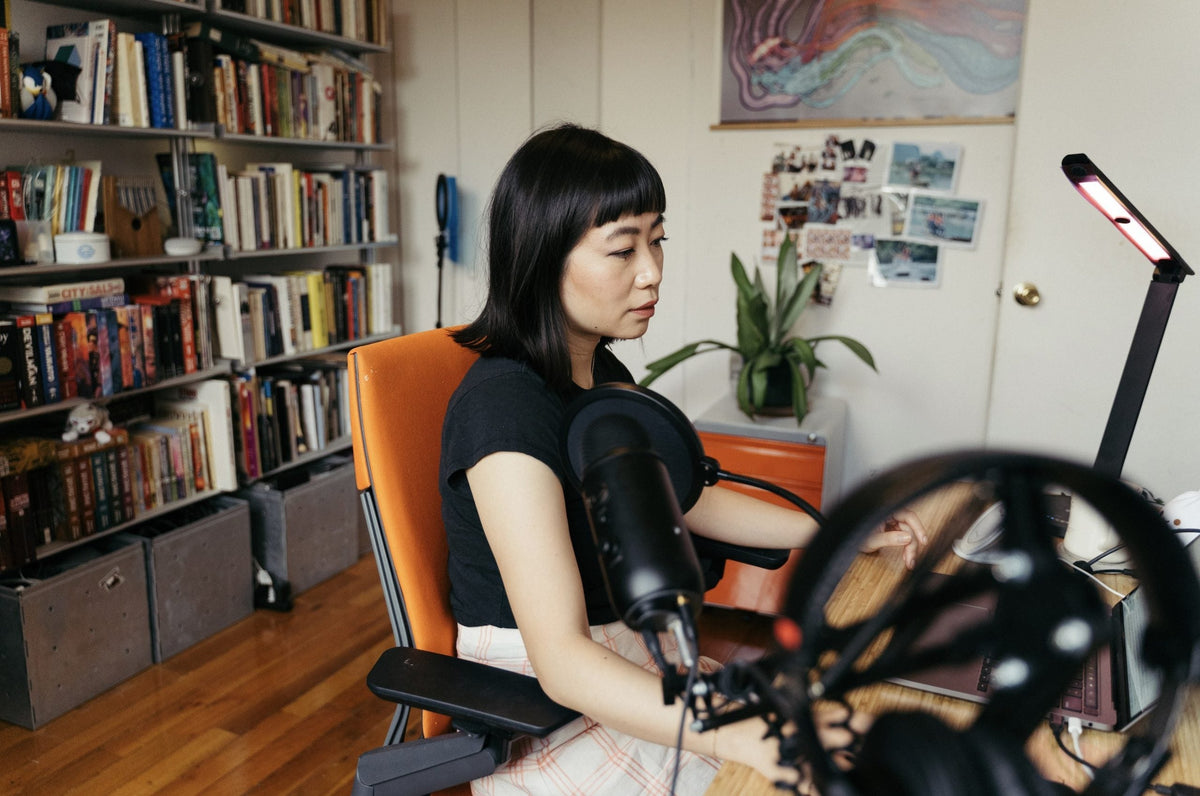
How to Leverage Language to Cultivate Your Creative Process
|
|
Time to read 3 min
|
|
Time to read 3 min
With experience advising projects for Kickstarter and imagining projects for Google, Nicole He has programmed AI to converse with Billie Eilish for Vogue, physical sensors that help users swipe on a dating app, and a Twitter bot that regularly photographs her growing fig plant. She is embarking on two long-term interactive projects—an arts-funded experimental game that uses voice technology, and a commercial indie game. Here, Nicole gives us concrete examples on how she has used words for her creative process—whether her own or through the press—to will her ideas into fruition.
“The Listserve was an email list that anybody could sign up for. Every day, one person would be randomly selected to send an email to everybody else. They managed to get 25,000 people to sign up. I got selected, and I was excited and nervous. I had a day or two to come up with an email. Many of the emails said profound things like “Love your neighbor, travel more,” as if they were someone’s dying words. I wanted to do something a bit different.
The Listserve was interesting because there’s many people on it—everyday, one person gets to say something, but no one else gets t, know who’s on The Listserve , or communicate with anybody else in this community. I thought, What if I try to have a meetup? I’ve no idea what would happen. The email I sent said: “On this date, at this time, I’m going to be at these coordinates with guacamole. You should join me if you want to. I expected nobody to show up.” As soon as I sent it, I immediately got 500 emails in response. It was mind blowing. As it turned out, like a ton of people showed up. There were probably over 100 people that showed up on the day. It was a beautiful experience. There was a lot of love, intrigue, and curiosity.
I studied journalism in undergrad, but never wanted to be a journalist, per se. I was more interested in the media studies side of things. One reason why this project and picnic was covered by the media was because many of my friends from college became journalists. Still, it was the first time that something that I did was covered by the media in this way. It was new and interesting. I would learn this later on, but being forced to speak about what you’re doing, in many ways actually is what solidifies what you’re doing. Also, being able to articulate a concept in a way that it’s appealing is so important.”
"My grad program at NYU encouraged me to document my work very seriously. I made a little GIF of the True Love Tinder Robot , which was one of my projects there. Then I tweeted the GIF, and suddenly it started blowing up on Twitter. This was the first time this had happened to me. Journalists started emailing me, asking about interviews.
This is where my experience at Kickstarter came in handy. It was my first job out of college. I got a job on the community team, which was a lot of basic customer service tasks. But it also evolved into sort of community management type of things where it was a lot of talking to people running Kickstarter projects, helping them with their projects, see going to events, and then that also then later evolved into more outreach, public speaking at events. My job was to teach people how to talk about their creative work."
"Weirdly, seeing my own ideas in the media suddenly made them even more true to the project."
"I knew I had to write something down to prepare for the journalists . I stayed up all night making a website. I wrote a bunch of stuff about the project. I was like, “This project is about these themes, and blah, blah, blah.” I didn't necessarily have that spec-ed out before. I had a concept in my mind—maybe I felt it emotionally, I had a feeling about what this thing is supposed to represent. Now what I’m saying makes it real. After that, I started responding to journalists the next morning. What blew my mind was this: the thing I wrote about my project became true about the project. Many of the things I would would say, the lazier journalists would just copy and paste. Weirdly, seeing my own ideas in the media suddenly made them even more true—things about a project being about intimacy, about computers knowing more than we know about ourselves. All of this became true, because someone else was saying things about my project, but based on what I had said about my project.
This project opened up so many opportunities—because of the media coverage I got, because of my good documentation, because of the writing I had quickly done about it. I realized that this was super important. Many times, you wouldn't go through the effort of writing stuff about your work. There's a lot to be said about putting in that effort of distilling an idea into a clear concept, writing that down, sharing it on social media—not just for that specific project, but for your whole career."


